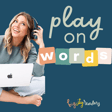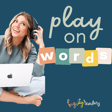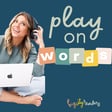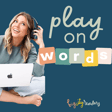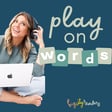
Ep. 52 3 Cueing and Reading Struggles: Why Your Child Might Be Falling Behind
In today’s episode from Big City Readers, I’m diving deep into one of the most debated topics in early literacy: the 3 cueing strategy and how it may be affecting your child’s ability to learn to read. If your child is struggling with blending sounds or progressing in reading, it’s essential to know whether they’ve been taught using the right strategies—and if those strategies are being used consistently.
We’ll explore key reasons why your child might be having a hard time, including:
- Are they using effective, research-backed reading methods?
- How does working memory play a role in learning to read?
- Why following directions is an important step in the process.
I’ll also explain why the 3 cueing system has been banned in many places and how its reliance on context and guessing can cause issues for children learning to read.
Plus, I’ll share more about my upcoming workshop for parents, where I’ll provide tips, activities, and support to ensure your child is learning to read the right way. And stay tuned as I talk about what I’ve been reading lately and how it ties into the science of reading.
What You'll Learn in This Episode:
- What is 3 Cueing: An explanation of the 3 cueing system (meaning, structure, and visual cues) and why it’s no longer recommended by many experts.
- Why It’s Problematic: The drawbacks of 3 cueing and how it can lead to children guessing words rather than truly decoding them.
- Working Memory & Reading: How your child’s working memory impacts their ability to blend sounds, retain information, and follow directions while reading.
- Following Directions & Reading: Why learning to follow multi-step directions helps build the skills your child needs to read independently.
- Signs Your Child is Struggling: Common red flags that your child may not be using the right strategies to learn to read.
- Upcoming Parent Workshop: Details on my next workshop for parents, where I’ll break down how to support your child in learning to read using proven techniques.
- What I’m Reading: A quick update on the latest books I’m diving into that center on the science of reading and early literacy education.
Resources Mentioned in the Episode:
- upcoming workshop
- Articles and research on 3 cueing and why it’s being phased out
- Books I’m reading on literacy and early childhood development
Connect with Me:
- Follow me on Instagram [@BigCityReaders]
- Visit my website [bigcityreaders.com]
- Sign up for my newsletter to stay updated on workshops, tips, and resources
This episode is a must-listen for any parent who feels their child is struggling with reading or who wants to understand how best to support their literacy journey. Tune in for practical insights, expert advice, and a chance to get involved in my upcoming workshop where we’ll dive even deeper into helping your child succeed in reading!
